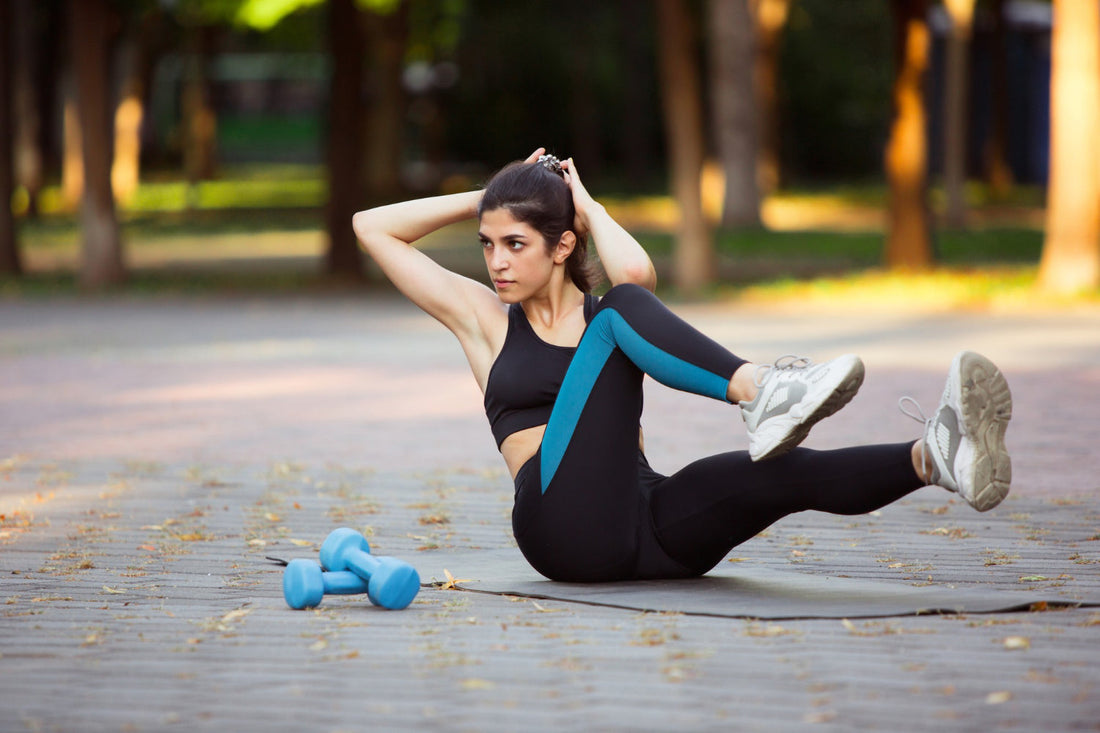Exercise is not only good for your body but also for your mind and mood. Regular physical activity can help you prevent or manage many health problems, such as imbalanced blood pressure, heart disease, osteoporosis, and depression. In this blog post, we will explore some of the health benefits of exercise for women, and how to start or maintain an exercise routine that suits your needs and preferences.
Benefits of Exercise for Women
Exercise can provide many benefits for women of all ages and fitness levels. The benefits of regular exercise:
- Lower blood pressure and cholesterol. Exercise can help lower your blood pressure and cholesterol levels, which can reduce your risk of developing heart disease, stroke, and other cardiovascular problems. Studies show that women who exercise regularly have a lower risk of heart attack than inactive women.
- Stronger bones and muscles. Exercise, especially strength training, can help you build and maintain your muscle mass and bone density, which tend to decline with age. This can prevent or delay the onset of osteoporosis, a condition that causes your bones to become weak and brittle. Strength training can also improve your balance, coordination, and posture, which can prevent falls and injuries.
- Weight loss and maintenance. Exercise can help you burn calories and fat, which can help you lose weight or maintain a healthy weight. Weight loss can also improve your self-esteem and body image, as well as reduce your risk of obesity-related diseases, such as diabetes and some cancers.
- Better mood and mental health. Exercise can boost your mood and make you feel good, thanks to the release of endorphins, chemicals that act as natural painkillers and antidepressants in your brain. Exercise can also reduce stress, anxiety, and depression, and improve your cognitive function and memory.
How to Exercise Regularly
To enjoy the benefits of exercise, you need to do it regularly and consistently. The American College of Sports Medicine recommends that adults get at least 150 minutes of moderate physical activity 75 minutes of vigorous physical activity per week, or a combination of both. Moderate physical activity means that you can talk but not sing while doing it, while vigorous exercise means that you can only say a few words without pausing for breath. Some examples of moderate physical activity are brisk walking, cycling, swimming, or dancing. Some examples of vigorous physical activity are running, jumping rope, aerobic exercise, or playing sports.
To start or maintain an exercise routine, you can follow these tips:
- Find an activity that you enjoy. If you like what you do, you are more likely to stick with it and have fun. You can try different types of exercise, such as yoga, pilates, martial arts, or Zumba, and see what suits you best. You can also vary your routine to avoid boredom and challenge your body in different ways.
- Set realistic and specific goals. Having a clear and attainable goal can motivate you and help you track your progress. For example, you can aim to walk for 30 minutes, three times a week, or to run a 5K race in two months. You can also reward yourself when you reach your milestones, such as buying new workout clothes or getting a massage.
- Make a schedule and stick to it. Planning your exercise sessions ahead of time can help you make them a priority and a habit. You can use a calendar, a planner, or an app to schedule your workouts and set reminders. You can also find a time that works best for you, whether it is in the morning, during lunch break, or in the evening. Try to be consistent and avoid skipping or postponing your workouts unless you have a valid reason.
- Find a partner or a group. Exercising with someone else can make it more fun and social, as well as provide you with support and accountability. You can ask a friend, a family member, a co-worker, or a neighbor to join you, or you can join a class, a club, or a team that shares your interests and goals. You can also challenge each other and celebrate your achievements together.
- Listen to your body and be flexible. While exercise is good for you, it is also important to listen to your body and respect its limits. If you feel pain, discomfort, or fatigue, you may need to slow down, take a break, or stop. You can also modify your exercise intensity, duration, or frequency according to your health, fitness level, and personal circumstances. Remember that some exercise is better than none and that you can always resume or increase your exercise when you are ready.
Exercise is one of the best things you can do for your health and well-being. By exercising regularly, you can enjoy many benefits for your body, mind, and mood. You can also have fun, meet new people, and discover new things. So, what are you waiting for? Start exercising today and see the difference for yourself!






